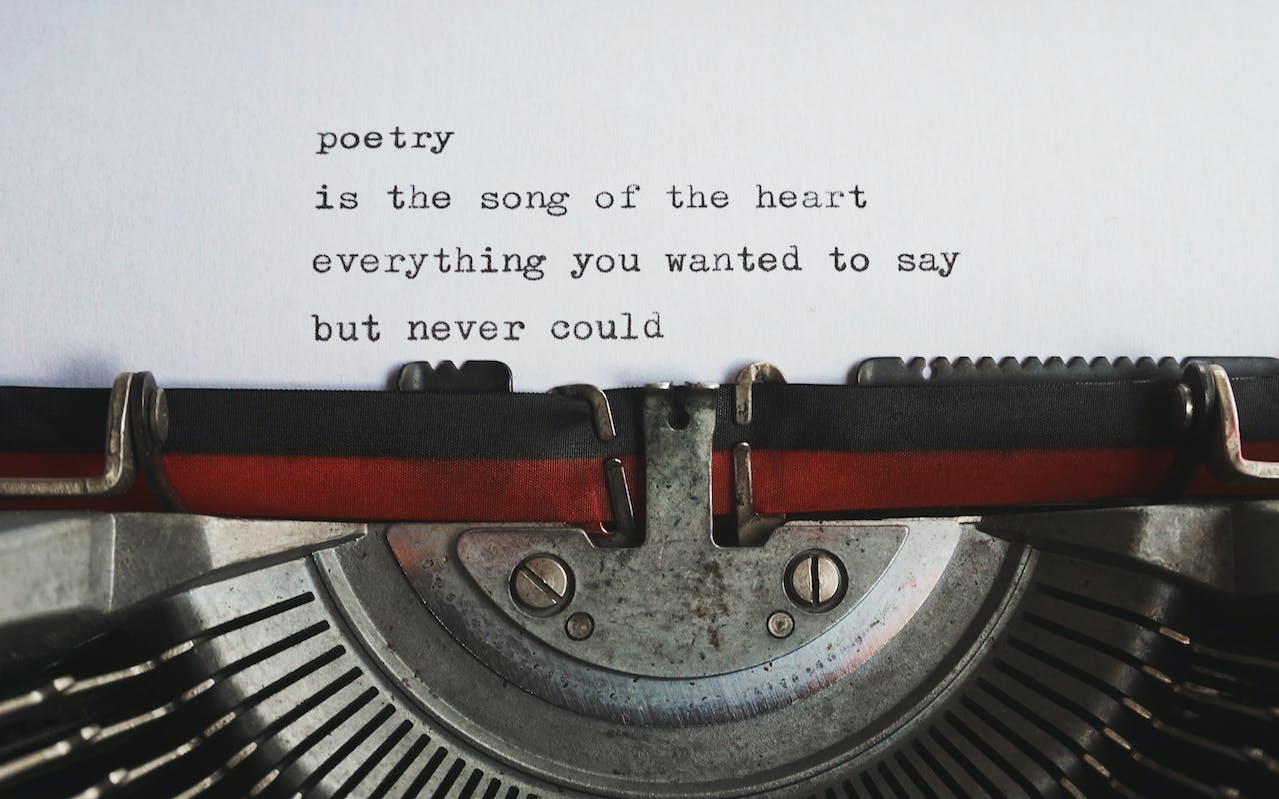If you’ve ever thought, “Gee, I wish I could express my feelings in a convoluted, artsy way that makes everyone think I’m deep and mysterious,” then you’re in luck! Poetry is exactly what you’re looking for. But don’t fret; becoming the next Shakespeare (or that moody kid from high school who always wore black) isn’t as difficult as it sounds. With these totally legit and not-at-all-sarcastic tips, you’ll be writing sonnets, haikus, and free verses before you can say “Wherefore art thou, creativity?”
The Basics: What on Earth is a Poem Anyway?
Before we embark on our journey to poetic greatness, let’s get one thing straight: What is a poem? It’s not just words that sound pretty, though if that’s your thing, no judgment here. But there’s a tad more to it.
- Definition, Please?
At its core, a poem is a form of expression, where words are arranged in a particular way to evoke emotion, depict a scene, or describe an idea. It’s like painting, but instead of colors, you have words. And instead of a canvas, you have… well, a canvas made of paper, I guess.
- Does it Always Rhyme?
Short answer: No. Long answer: Nope. Rhyme is like the glitter of poetry. Some poems sparkle with it, others are just fine without the bling. Rhyming can be fun, and it provides structure, but don’t feel pressured to force “moon” to hang out with “spoon” all the time.
- What About Rhythm?
Ah, the heartbeat of a poem. Rhythm gives your poem a musical quality, a certain flow. Think of it like the background beat to your favorite song. Not all poems have a strict rhythm, but it’s a nifty tool in your poetic toolkit.
- Poetic Forms: The Good, The Bad, The Haikus
There are a bazillion forms of poetry, give or take a few. From sonnets (Shakespeare’s favorites) with their 14 lines, to haikus (Japan’s gift to concise poets) with their 5-7-5 syllable structure, to free verse (the “I-do-what-I-want” of poetry). Find what tickles your fancy and go with it. Or mix and match. Who’s stopping you?
- Rules? In MY Poetry?
Poetry does have rules, especially if you’re sticking to specific forms. But remember, rules in poetry are a bit like the Pirate Code — more guidelines than actual rules. Don’t be afraid to bend, twist, or completely ignore them. Just maybe know them first, so you know which ones you’re rebelliously breaking.
Armed with this knowledge (and hopefully not yawning too hard), you’re all set to dive into the fantastic, befuddling, and utterly delightful world of poetry. Onward, brave bard-to-be!
The Guide to Writing Poetry
1. Get Inspired By Nature. Or Don’t.
Nature: birds chirping, flowers blooming, and the sweet scent of rain in the air. Many poets wax lyrical about the beauty of the natural world. So, go outside, take a deep breath, and stare intensely at a tree. If the tree doesn’t whisper secrets of the universe to you, don’t worry. Some of us just aren’t tree whisperers. Instead, you can always write about your Netflix binge or how the pizza delivery was late. Truly, inspiration is everywhere.
2. Use Obscure Words. Or Common Ones.
Nothing screams ‘I’m a legit poet’ quite like using words that no one understands. Dive into the thesaurus and fish out some fancy words like “effulgent” or “crepuscular.” Readers will either be in awe of your vast vocabulary or utterly confused. Either way, you win.
However, if you can’t remember those words (who can?), just go with what you know. “Dog” and “cat” have worked for many a poet. And hey, if Dr. Seuss can make an entire poetic career out of “cat in the hat,” so can you.
3. Feelings. All the Feelings.
Poetry is all about emotion. It doesn’t matter if you’re writing about love, despair, or that feeling you get when you step on a LEGO (pure agony, by the way). Just pour all your feelings onto the page. The more dramatic, the better. If you haven’t sighed heavily, teared up, or dramatically clutched your chest while writing, are you even doing it right?
4. Rhyme, But Only If You Feel Like It.
Some say rhyming is the soul of poetry. Others say it’s old-fashioned and restrictive. If you’re in the first camp, fantastic! Rhyme away with lines like “Roses are red, violets are blue, I can’t rhyme, and neither can shoe.” But if you’re in the second group, just write words. Any words. They don’t have to make sense. Remember, it’s called “free verse” for a reason. You’re free from rhyme, reason, and occasionally, logic.
5. Avoid Clichés. Like Plagues.
Clichés in poetry are like pineapple on pizza – some people love them, others would rather get a root canal. To be safe, avoid lines like “Her eyes were like deep pools of mystery.” Unless, of course, she’s a mutant with actual pools for eyes. In which case, that’s not a cliché; that’s a sci-fi novel.
6. Adopt a Poet Persona.
Ever seen photos of Edgar Allan Poe or Emily Dickinson? They had the “look.” The dark, brooding, ‘I-have-seen-the-depths-of-human-soul’ kind of look. Maybe get some vintage glasses or grow a goatee. Or, if you’re feeling particularly adventurous, carry around a quill and inkwell. It’s not about being pretentious – okay, maybe a little – but every great artist needs a signature style, right?
7. Embrace the Mighty Metaphor. Or the Silly Simile.
Speaking of “Her eyes were like deep pools of mystery,” let’s dive deeper into metaphors and similes. These are the spice to your poetic curry. Metaphors are direct comparisons, like “Life is a roller-coaster.” Similes, on the other hand, use “like” or “as” to make a comparison, such as “Busy as a bee on Red Bull.” Be as dramatic or as absurd as you like. The sky isn’t just the limit; it’s a cerulean tapestry of dreams, after all.
8. Read Other Poets, but Don’t Get Too Jealous.
There’s a saying, “Good poets borrow; great poets steal.” While I don’t advocate for outright plagiarism, reading other poets can give you some idea scaffolds. And if you read a line that makes you green with envy, remember: they probably started out writing cringe-worthy lines like “Moon, spoon, June” too.
9. Workshops: Where Dreams and Egos Get Crushed.
Joining a poetry workshop or group can be immensely helpful. There, you’ll find like-minded souls who will offer you feedback (read: crush your spirit), give you tips (read: show off their knowledge), and inspire you (read: make you wonder why you even tried). Jokes aside, the right group can offer valuable feedback and be a great support system.
10. Remember: You Do You.
At the end of the day, poetry is personal. It’s your heart, your soul, your voice. Whether you’re penning lines that would make Shakespeare weep or jotting down something that sounds like a cat walked over your keyboard, it’s uniquely you. And in this vast universe of words and emotions, that’s all that truly matters.
In conclusion, if you’ve made it this far without rolling your eyes (too much), congratulations! You’re now armed with all the (not-so-serious) tools you need to embark on your poetic journey. So, go forth, fellow poet-warrior, and may the verses be ever in your favor!
Pro Tips for the Budding Bard:
- Consistency is Key: Just like any skill, practice makes perfect. Write every day, even if it’s just a line or two. Over time, you’ll find your voice and style.
- Rejection is Part of the Process: If you decide to submit your poetry for publication, prepare for rejection. Even renowned poets faced countless rejections before their work was accepted. Each rejection is a step closer to acceptance.
- Revise, Revise, Revise: Your first draft is just that — a draft. Return to your poems with fresh eyes and tweak them. Sometimes, the 10th version is where the magic happens.
- Read Aloud: Poems often play with sound, rhythm, and cadence. Reading your work aloud helps you catch awkward phrasings or stumble points.
- Stay Curious: Inspiration can strike from the most unexpected sources. Keep an open mind, explore new experiences, and never stop being curious.
- Keep a Notebook: Whether it’s a fancy leather-bound book or a notes app on your phone, have a place to jot down sudden inspirations, overheard conversations, or interesting words.
- Diversify Your Reading: While reading classical poets is invaluable, also explore contemporary poets, poets from diverse backgrounds, and different poetic forms from around the world.
- Avoid Overthinking: While it’s good to be meticulous, don’t overthink every word choice to the point of paralysis. Sometimes, instinctive writing captures emotions most authentically.
- Share with Trusted Friends: Sometimes, a fresh set of eyes can catch inconsistencies or offer insights that you might have missed.
- Stay Passionate: Remember why you started writing poetry in the first place. Whether it’s to express emotion, capture a moment, or just play with words, let your passion shine through your work.
FAQ: Becoming a Poetry Prodigy (Or Just Having Fun Trying)
Absolutely not! While formal education might give you insights into literary techniques and famous poets, it’s not a prerequisite. Many celebrated poets didn’t have formal literary training. Passion and practice are your best teachers.
Poetry is subjective. What resonates with one person might not with another. If it’s genuine and it means something to you, then it’s good. Feedback from trusted sources can also be insightful.
The beauty of poetry is its flexibility. While traditional forms like sonnets and haikus have their charm, feel free to experiment and find what suits your voice best.
Ah, the age-old nemesis! Try reading, taking a walk, doodling, or even taking a break. Changing your environment or routine can also help spark inspiration.
Absolutely! In fact, your unique linguistic background can bring fresh perspectives and nuances to your poetry. And remember, many great poets wrote in their second or third language.
Start with local magazines, online platforms, or self-publishing. Joining workshops or writer’s groups can also provide opportunities and insights into the publishing world.
Not at all. While some forms of poetry emphasize rhyme, many modern poems don’t rhyme at all. It’s all about what feels right for your piece.
Yes! Some of the most relatable and touching poems are about everyday experiences. It’s not always about what you say, but how you say it.
Poetry has a wide range. It can be deep and introspective, but it can also be light, funny, or whimsical. Write what feels right for you.
Sharing personal work can be daunting. Remember, every poet, even the famous ones, faced criticism. Use constructive feedback to grow, and remember that not every critique defines your potential.



